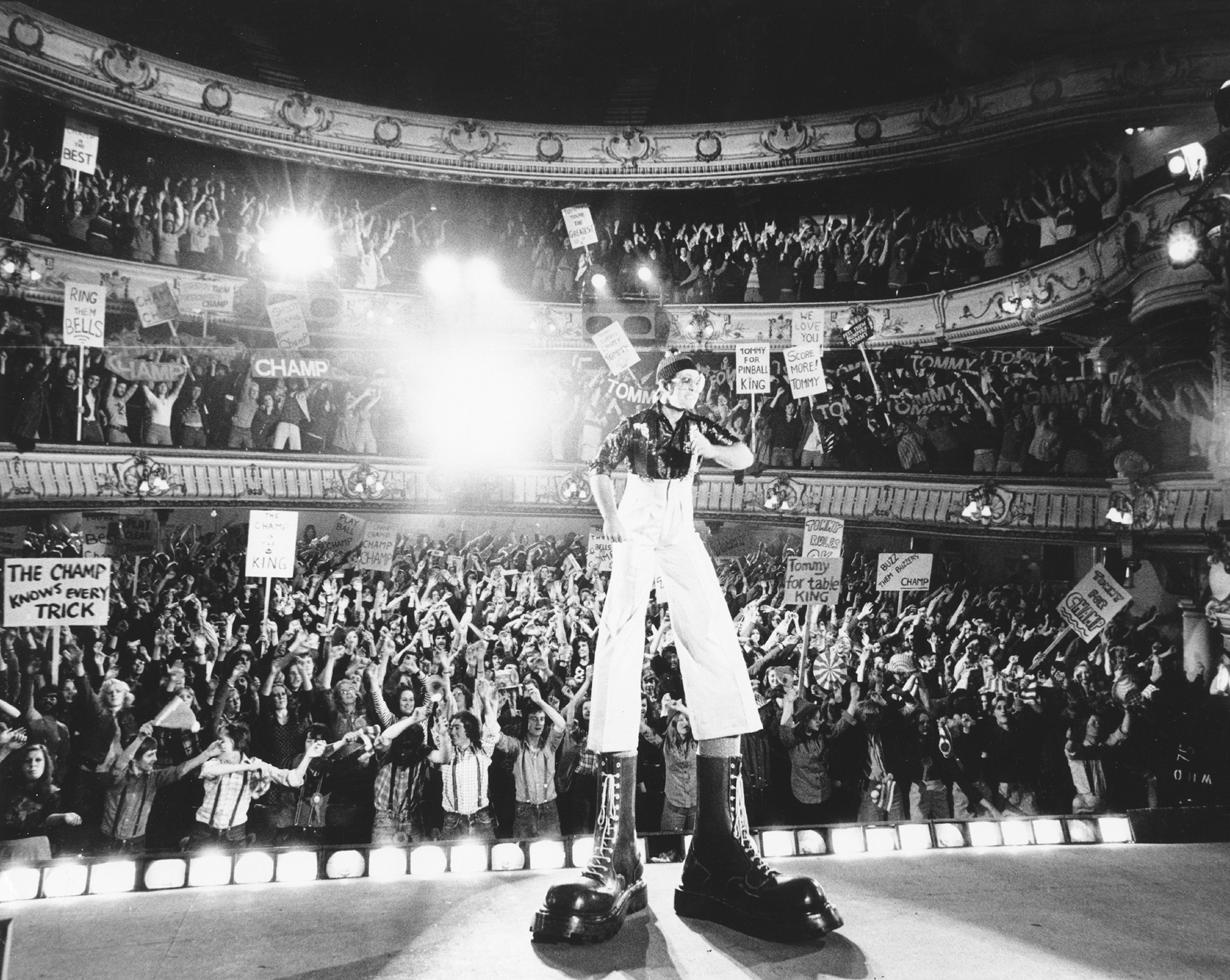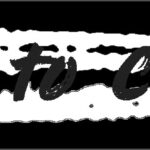 Elton John in Tommy movie
Elton John in Tommy movie
“Pinball Wizard” – the very name conjures up images of flashing lights, the clatter of bumpers, and the ecstatic ring of bells. This iconic song, a true rock anthem, is more than just a catchy tune; it’s a testament to the power of music to tell a story and capture the imagination. Originally penned and performed by The Who, “Pinball Wizard” quickly transcended its initial rock and roll origins, becoming a hit song that resonated across generations and musical landscapes. But its journey didn’t stop there. The song’s inherent theatricality and narrative drive made it a natural fit for the stage, evolving into a key number within the groundbreaking rock opera Tommy and subsequently, a celebrated piece in various musical versions. The story of “Pinball Wizard” is a fascinating exploration of how a single song can morph and adapt, retaining its core brilliance while taking on new dimensions in different interpretations, particularly within the context of a musical.
The Enduring Appeal of “Pinball Wizard”
What is it about “Pinball Wizard” that has cemented its place in the pantheon of rock classics? From the opening acoustic guitar riff, instantly recognizable and undeniably infectious, the song grabs your attention and doesn’t let go. Pete Townshend’s songwriting genius is on full display here, crafting a narrative within a narrative. The lyrics, seemingly simple on the surface, tell the story of a deaf, dumb, and blind boy named Tommy who, despite his disabilities, becomes a pinball prodigy. This unusual premise, combined with the driving rhythm and anthemic chorus, creates a unique and compelling listening experience.
The song’s energy is undeniable. Roger Daltrey’s powerful vocals, backed by the dynamic instrumentation of The Who, build momentum throughout the track, culminating in a euphoric release. It’s a song that makes you want to move, to sing along, and to believe in the extraordinary potential within the seemingly ordinary. Beyond the sheer musicality, “Pinball Wizard” taps into universal themes of overcoming adversity and finding unexpected talent. This resonance, combined with its undeniable rock and roll swagger, is key to understanding why “Pinball Wizard” remains a hit song, decades after its initial release.
“Pinball Wizard” in Tommy: From Album to Stage
“Pinball Wizard” was conceived as a pivotal song within The Who’s ambitious rock opera, Tommy. Released in 1969, Tommy was a groundbreaking concept album that told a cohesive story through a series of interconnected songs. “Pinball Wizard” is strategically placed within the narrative to highlight Tommy’s burgeoning pinball skills and the almost messianic status he achieves as a result. It’s the moment where Tommy’s hidden talent is revealed to the world, transforming him from an isolated and misunderstood figure into a sensation.
The theatrical nature of Tommy always hinted at a life beyond the album. It was almost inevitable that this rock opera, with its dramatic storyline and powerful songs like “Pinball Wizard,” would find its way to the stage. The musical version of Tommy premiered in 1971, further amplifying the impact of “Pinball Wizard.” On stage, the song takes on a new dimension. The visual spectacle of a live performance, combined with the amplified drama of the narrative, elevates “Pinball Wizard” from a hit song to a show-stopping musical number. The musical versions allowed for a deeper exploration of Tommy’s journey and the emotional core of the song, solidifying “Pinball Wizard”’s place not just as a rock classic, but as a cornerstone of musical theatre.
Iconic Versions of “Pinball Wizard”
While The Who’s original recording remains the definitive version for many, the song’s inherent strength has allowed for numerous successful interpretations, each bringing a unique flavor to the pinball phenomenon. Let’s explore some of the most iconic versions:
The Who’s Original (1969): Setting the Standard
 Elton John in Tommy movie
Elton John in Tommy movie
The 1969 original by The Who is, without a doubt, the benchmark against which all other versions are measured. It’s raw, energetic, and perfectly captures the spirit of the song. Pete Townshend’s distinctive acoustic guitar riff is the backbone of the track, providing a driving rhythm that propels the song forward. The instrumentation is lean and powerful, allowing the energy of the performance to shine through. Roger Daltrey’s vocals are passionate and commanding, perfectly embodying the awe and excitement surrounding Tommy’s pinball prowess. This version is a quintessential rock and roll performance, a foundational piece in the history of the genre. It’s the sound of a band at the peak of their creative powers, innovating and pushing boundaries. The original “Pinball Wizard” is more than just a song; it’s a statement.
Elton John’s 1975 Rendition: A 70s Rock Anthem
 Elton John in Tommy movie
Elton John in Tommy movie
Elton John’s 1975 version of “Pinball Wizard,” recorded for the Tommy film adaptation, injects a distinct 70s rock sensibility into the song. While retaining the core energy of the original, Elton’s version is grander and more theatrical, befitting its cinematic context. The acoustic guitar riff is still present, but it’s augmented by Elton’s signature piano playing and Davey Johnstone’s electric guitar work, creating a richer and more layered sound. Elton John’s vocal delivery is characteristically flamboyant and powerful, bringing a different kind of showmanship to the song. This version resonated strongly with a new generation, particularly those who encountered Tommy through the film. For many, Elton John’s “Pinball Wizard” is the definitive rendition, a powerful and memorable interpretation that stands on its own merits as a 70s rock anthem. It captures the glam rock era perfectly, offering a polished and electrifying take on the classic song.
Rod Stewart with the London Philharmonic Orchestra: A Unique Orchestral Take
Rod Stewart’s collaboration with the London Philharmonic Orchestra offers a truly unique and unexpected take on “Pinball Wizard.” This version, recorded in the early 1970s, brings a level of orchestral grandeur and dramatic flair that sets it apart from both The Who’s original and Elton John’s rock-infused rendition. The orchestral arrangement adds layers of depth and complexity to the song, highlighting the melodic and harmonic richness that might be less apparent in the more straightforward rock versions. Rod Stewart’s distinctive raspy vocals bring a different emotional texture to the song, emphasizing the narrative and dramatic elements. This version appeals to those who appreciate a more sophisticated and musically expansive interpretation of “Pinball Wizard.” It demonstrates the song’s versatility and its ability to transcend genres, proving that its core strength can shine even in a drastically different musical setting.
Conclusion
“Pinball Wizard” is a testament to the power of a truly great song. From its origins as a key track in The Who’s rock opera Tommy, to its evolution into a stage musical staple, and through its numerous iconic recordings, the song has consistently captivated audiences. Whether you prefer the raw energy of The Who’s original, the 70s rock bombast of Elton John’s version, or the orchestral grandeur of Rod Stewart’s rendition, it’s undeniable that “Pinball Wizard” is a hit song in any form. Its enduring appeal lies in its compelling story, its unforgettable melody, and its sheer rock and roll power. It’s a song that invites you to listen, to engage, and to choose your favorite version.
Now we want to hear from you! Which “Pinball Wizard Hit Song Musical Version” resonates with you the most? Share your thoughts and opinions in the comments below!

